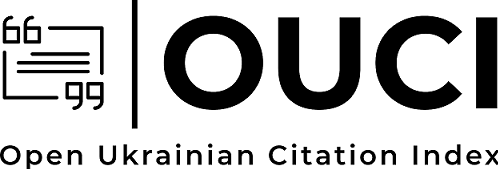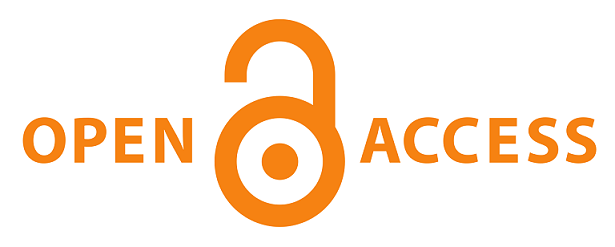УСПІХИ ШКІЛЬНОЇ ОСВІТИ В РЕСПУБЛІЦІ КОРЕЯ: ІСТОРИЧНІ ЧИННИКИ СУЧАСНОГО РЕФОРМУВАННЯ
DOI:
https://doi.org/10.28925/2524-0757.2020.2.8Ключові слова:
шкільна освіта, освітні реформи, освіта в Республіці КореяАнотація
У статті здійснено аналіз історичних подій, передусім ХХ ст., що уможливили сучасні зміни в шкільній освіті Республіки Корея. Показано, як попри складну ситуацію, що склалася на Корейському півострові до кінця Другої світової війни, південні корейці за сприяння Американської Військової Адміністрації зуміли подолати усі негативні залишки колоніального періоду й виробити чітку траєкторію реформування освітньої системи. Також продемонстровано, що освіту в Південній Кореї визначено як пріоритетний чинник успішного державного розвитку і безпеки країни загалом. Презентовано основні сучасні досягнення шкільництва Республіки Корея.
Завантаження
Посилання
Asmolov, K. V. (2003). Socialno-psihologicheskie izmeneniia v sovremennom yuzhnokoreiskom obshchestve. Vestnik Tsentra koreiskogo yazyka i kultury, 5–6, 249–283 [in Russian].
Biuro statistiki [in Russian]. https://knoema.ru/atlas/Южная-Корея/topics/Образование
Chakrabarti, R. (2013). South Korea’s Schools: Long Days, High Results. BBC News. https://www.bbc.com/news/education-25187993
Cotton, J. (1989). From Authoritarianism to Democracy in South Korea. Political Studies, 37, 244–259.
Education in Korea — Life in Korea December. lifeinkorea.com/information/education.cfm
Doskoch, V. (2019). Pivdenna Koreia: ekonomichne dyvo za odne pokolinnia Instytut Prosvity [in Ukrainian]. https://iprosvita.com/pivdenna-koreia-ekonomichne-dyvo-za-odne-pokolinnia/
Helgesen, G. (1998). Democracy and Authority in Korea: The Cultural Dimension in Korean Politics. N.Y.: St. Martin’s Pr [in English].
Holovina, O. (2019). Finskyi dosvid osvity. Yak i navishcho uchni u Finliandii otsiniuiut sebe. Nova ukrainska shkola [in Ukrainian]. https://nus.org.ua/articles/finskyj-dosvid-osvity-yak-i-navishho-uchni-u-finlyandiyi-otsinyuyut-sebe/
Kurbanov, S. O. (2009). Istoriia Korei: s drevnosti do nachala XXI v. Sankt-Peterburg [in Russian].
Orhanizatsiia Ekonomichnoho Spivrobitnytstva ta Rozvytku. (2017). UNIC [in Ukrainian]. https://unic.org.ua/partners/4/
Pak, V. G. (2004). Nekotoryie cherty sistemy obrazovaniia v Respublike Koreia. PDV, 2, 120–130 [in Russian].
Pershyi Ukaz pro osvitu (제1차 조선교육령), ukhvalenyi 23 serpnia 1911 r. [in Korean]. https://ko.wikipedia.org/wiki/제1차_조선교육령
Tikhonov, V. M., Kan, Mangil (2011). Istoriya Korei. V. II. Dvadtsatyi vek, Moskva [in Russian].
한국현대사, 제4장 제1절, 창작과 비평사 교육 (Osvita). [in Korean]. http://encykorea.aks.ac.kr/Contents/Index?contents_id=E0005524
South Korea: Teacher and Principal Quality (2019). NCEE. https://ncee.org/what-we-do/center-on-international-education-benchmarking/top-performingcountries/south-korea-overview/south-korea-teacher-and-principal-quality/
South Korea’s Education Success. (2005). BBC News. http://news.bbc.co.uk/2/hi/uk_news/education/4240668.stm
Опубліковано
Як цитувати
Номер
Розділ
Ліцензія
Авторське право (c) 2020 Галина Саган, Анастасія Трофимченко

Ця робота ліцензується відповідно до Creative Commons Attribution-NonCommercial-ShareAlike 4.0 International License.
Автори, які публікуються у цьому журналі, залишають за собою право на авторство своєї роботи та передають журналу право першої публікації цієї роботи на умовах публічної ліцензії Creative Commons: Attribution-NonCommercial-ShareAlike 4.0 International (CC BY-NC-SA 4.0), котра дозволяє іншим особам вільно розповсюджувати опубліковану роботу з обов'язковим посиланням на авторів оригінальної роботи та першу публікацію роботи у цьому журналі.














